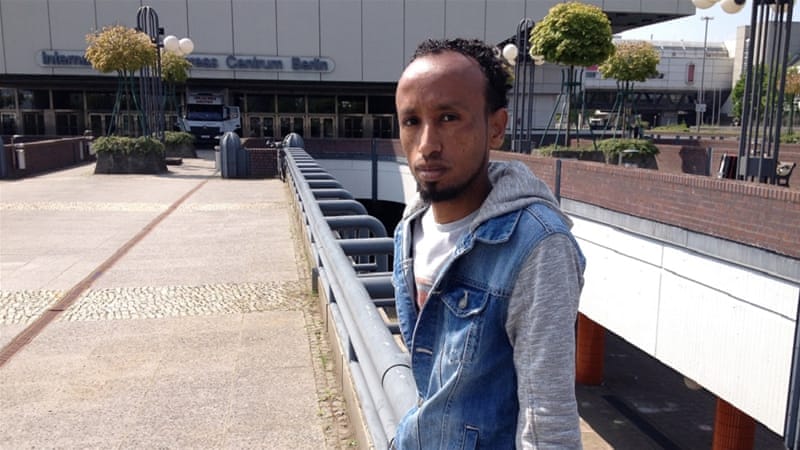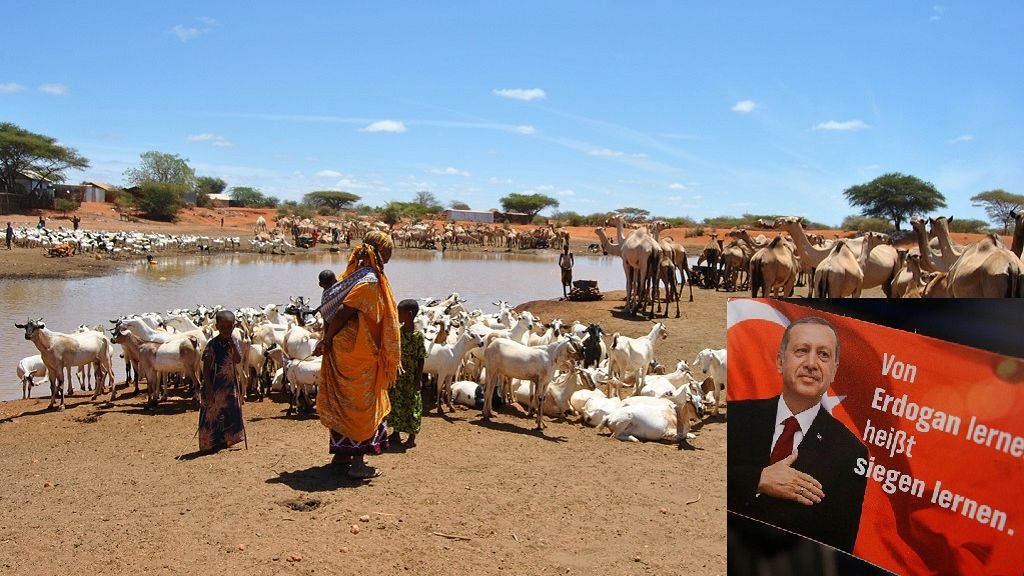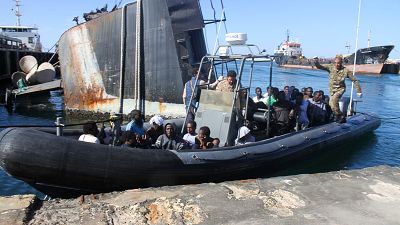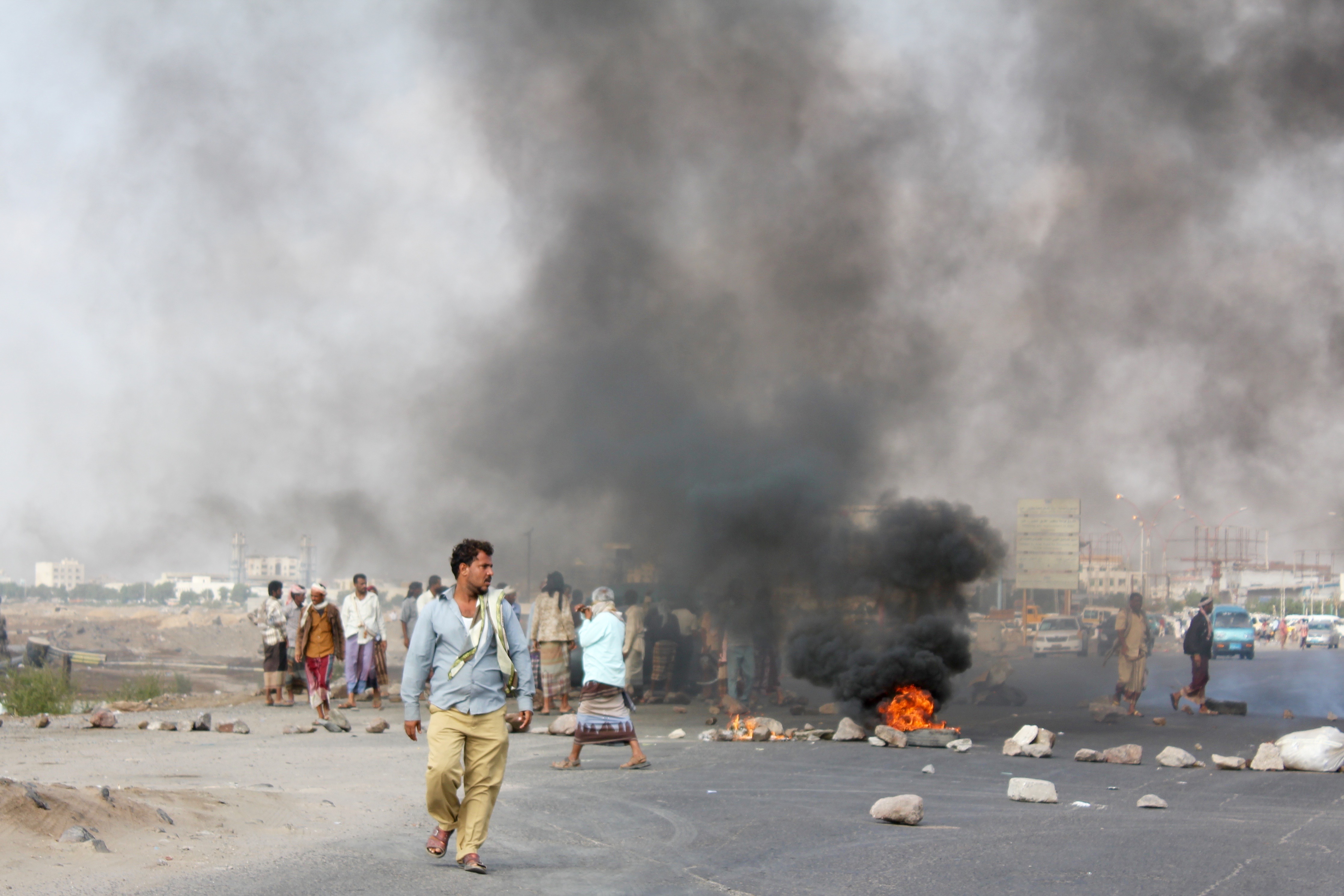 Yemane Mesgen eventually made it to Germany after a treacherous journey as a refugee [Yermi Brenner/Al Jazeera]
Yemane Mesgen eventually made it to Germany after a treacherous journey as a refugee [Yermi Brenner/Al Jazeera]

by
Multimedia Journalist
Berlin, Germany - The most crucial decision for a person forced to flee their homeland is where to seek asylum. That is the hard lesson learned by Yemane Mesgen on his harrowing journey as arefugee.
Mesgen was born and raised inEritrea, where the government hascommitted crimes against humanity, including indefinite military or police service, according to the United Nations. In 2008, after he was recruited to be a policeman, Mesgen decided to flee his homeland. He considered going toEurope, but was afraid of the dangerous journey acrossLibyaand the Mediterranean Sea.
Instead, he choseIsraelas his destination for asylum.
The Israeli government "does not like refugees", the 28-year old Mesgen recently told Al Jazeera in the German capital. He spoke nearly fluent Hebrew, which he picked up during the seven years he lived in Israel.
Mesgen managed to safely crossSudanthrough the Sinai desert - where many Eritreans have beencaptured and tortured- and entered Israel in 2008.
Unfortunately for Mesgen, however, the Israeli government has been unwelcoming to Eritrean nationals, granting refugee status to less than one percent of arrivals.
Israel does not deport Eritreans back to their dangerous homeland because that would violate theUnited Nations Refugee Convention. Instead, Eritreans get short-term visas that must be continuously renewed, but they have no right to work or access to welfare services.
READ MORE: Meet the Eritrean refugee turned rescue volunteer
Mesgen lived in this legal limbo for seven years, getting by by working illegally in restaurants and sharing a tinyJerusalemflat with other Eritreans. Then, in 2015, Israeli authorities ordered him to reside in Holot, adetention centre for "illegal immigrants",which has the capacity to accommodate 3,000 people, without freedom of movement or the right to work.
The only other alternatives offered to Mesgen - andother Eritreans- were to return home voluntarily or leave Israel for another African nation. "I didn't want to go to Holot," Mesgen recalled. "I told them I cannot go back to my country, but I will go back toAfrica."
In July 2015, an Israeli immigration officer escorted Mesgen to Ben-Gurion international airport, handed him a one-way ticket toRwandawith a travel document for Rwandan immigration officials, and $3,500 in cash - the reward for those who exit Israel voluntarily.
The initiative was launched by the Israeli Immigration Authority in 2013 to persuade asylum seekers to leave the country. Mesgen is one of more than 14,000 asylum seekers, mostly from Eritrea and Sudan, who have left Israel through the voluntary departure programme over the past three years.
Israel - a signee of the UN Refugee Convention - sends people who need protection to countries that do not protect them, in the process, forcing asylum seekers to go on dangerous smuggling routes, according to reports by international and IsraeliNGOsand interviews that Al Jazeera conducted with Eritreans who made it to Europe.
False promises
Before leaving Israel, Mesgen received a letter that the Population and Immigration Authority distributed to Eritreans in the country. The letter promised those who leave voluntarily will be granted a residence permit and the right to work in the African country where they land. But when Mesgen arrived in Rwanda, he realised those promises were empty.
He said a man who introduced himself as "John from immigration" picked him up from a restricted area in Rwanda's international airport, took away the Israeli travel document, escorted him to a villa in the capital Kigali where other Eritreans stayed, and told him not leave the premise. After two days, John told the Eritreans he would smuggle them toUgandain exchange for $250 a person.
 |
| A letter presented to refugees on arrival in Rwanda [Yermi Brenner/Al Jazeera] |
Mesgen's story about what happened to him in Rwanda is similar to testimonies from other Eritreans who exited Israel via the voluntary departure procedure.
Research by theInternational Refugee Rights Initiative - a non-profit organisation focusing primarily on Africa - found Eritrean and Sudanese asylum seekers who left Israel voluntarily were sent to Rwanda and Uganda. Upon arrival, they were either encouraged to leave these countries, or live under the radar without legal status.
In the reportDeported to the Unknownby theHotline for Refugees and Migrants - a Tel-Aviv based NGO -Eritreans who left Israel voluntarily testified they were denied residence permits in Rwanda, heldcaptive fordays at a villa in Kigali, and eventually were smuggled to Uganda.
Secret agreements
The legality of Israel's voluntary departure procedure was challenged in an Israeli court in 2014. The state declared it has secret agreements with two unidentified African countries to take in Eritreans and Sudanese who leave Israel. Revealing the identity of the two African countries and details of the agreements "may harm Israel's foreign relations", according to aletterthat Israel's Prime MinisterBenjamin Nethanyausent to the court.
Al Jazeera asked Israel's Population and Immigration Authority what it does to ensure the safety of those who voluntarily exit. Spokeswoman Sabin Hadad said in an email she could not provide details because the agreements Israel has with the two unnamed African countries are confidential.
READ MORE: Eritrean refugees in Israel sent to Uganda and Rwanda
For Mesgen, the journey from Rwanda toGermanywas both dangerous and costly. He travelled on smuggling routes across Uganda and intoSouth Sudan, where he was caught and imprisoned for two months.
"The South Sudan authorities told me, 'You don't have a passport so you might be a criminal.' I told them I am not a criminal - I said I was in Israel and now I came here. They said to me you don't have a passport, you don't have any Israeli document, you don't have Eritrea passport, it is dangerous for us. We cannot let you out of the prison," Mesgen recalled.
He bribed his way out of jail and continued his treacherous journey through Sudan and Libya to the coastal city of Benghazi, where he boarded a 10-metre-long fishing boat that would take him toItaly.
"There were 600 people on board, there was no space at all, people on top of each other, very tight. There were a lot of Eritreans and Somalis and other Africans," he said. "It was, of course, very scary to board this boat, but what can I do, I had no other choice."
'Burden-shifting'
While the Israeli court legitimised voluntary departure, theUnited Nation High Commission on Refugeeshas been critical of its implementation.
"We are concerned and we have raised the concerns with the government of Israel because we do have information that [refugees] are not necessarily having the necessary protection safeguards," UNHCR's representative in Israel, Walpurga Englbrecht, told Al Jazeera.
Englbrecht said Israel should provide assurances that asylum seekers who leave for the African countries will indeed be granted adequate documentation, residency permits, and the ability to work. UNHCR is not against voluntary departure, but Englbrecht said the procedure is problematic "if it is not really responsibility-sharing, but more burden-shifting".
READ MORE: Calais - Eritrean refugees tell of torture and fear
Israel is not the only one to implement voluntary departure procedures -Australiaand the European Union have similar systems in place. But the fact its agreements with Rwanda and Uganda are confidential raises red-flags, saidReuven Ziegler, aresearch associateat the Refugees Studies Centre at the University of Oxford.
Ziegler said asylum seekers have a "very precarious status, if at all" in Rwanda and Uganda, do not have access toRefugee Status Determination, and find themselves having to continue their journey and seek protection elsewhere.
That is exactly what happened to Mesgen and also to Aman, a 31-year-old Eritrean who spoke to Al Jazeera in Berlin. Aman - who today has refugee status in Germany - asked that his real name not be used because his mother and sister still live in Eritrea and he fears for their safety.
No monitoring
He fled his homeland in 2008 to avoid recruitment into the military. Relying on people smugglers, Aman tried to reach Israel where he thought he would be able to get protection status. On his way, however, he was abducted in Sinai - as wereas many as 30,000 Eritreans - and held captive for 35 days until his family paid ransom for his release. Aman said he was tortured and beaten, and pointed to a broken front tooth as one of the consequences of that horrific experience.
In Israel, he never received refugee status and had to renew his visa every fours months. He managed to find work illegally as a kitchen cleaner, and made enough money to survive - even enough to send to his mother in Eritrea.
"In Israel, I felt stress … I had some work but not freedom," Aman said. "There's no democracy in Israel."
In April 2014, after he was summoned to the Holot Detention Centre for Illegal Immigrants, he agreed to voluntarily leave the country. He said on his flight out of Israel 39 other Eritreans were with him, none ended up staying in Rwanda.
Israel does not monitor what happens to the Eritreans and Sudanese who land in Rwanda and Uganda, according to Sigal Rozen, public policy coordinator at theHotline for Refugees and Migrantsand author of theDeported to the Unknownreport.
"All the 47 interviewees that we managed to locate ... were not asked to provide phone numbers or addresses to the Israeli authorities, and, of course, they had no contact with the Israeli authorities after they left," Rozen said.
The majority of Eritreans plan to smuggle their way intoEthiopiaand try to survive there, while some head on the dangerous route through Sudan and Libya for Italy, with the hope of finding refuge in Europe.
"We receive a lot of calls and emails from worried relatives around the world - and also in Israel - about people who left and disappeared," Rozen said.
Captured by ISIL
Aman said five Eritreans aboard his flight out of Israel tried to make it to Europe but were captured and killed by the Islamic State of Iraq and the Levant group in Libya. He pulled out his phone and played an online video byISIL, known as ISIS - showing preparations for beheadings - and identified two people he knew being led to their deaths.
While Aman did not fall into ISIL's hands, he faced significant danger and uncertainty. Similar to Mesgen's story, Aman said when he landed in Kigali he was sent to a nearby hotel and two days later was smuggled out of Rwanda to Uganda.
From there, he tried to reach South Sudan, but was caught by border guards who did not let him leave until he surrendered all the money he had left from the $3,500 that Israeli authorities handed him when he left. They let him keep $50 and told him to go away.
"I didn't have clothes, I didn't have a bag, nothing," Aman said.
WATCH: Identity of 'smuggler' extradited to Italy questioned
His younger brother was in Israel at the time, but now also lives in Germany. He sent Aman some money to Juba, capital of South Sudan. After collecting the cash, Aman travelled to Khartoum, Sudan's capital, where he met his wife who he had not seen in six years.
She is an Eritrean who had been living in a refugee camp in Ethiopia. The couple made their way through Libya - where they again were captured and forced to pay ransom - and then across the Mediterranean Sea on an overcrowded smugglers' boat with hundreds of other people from various countries.
No data is available on how many asylum seekers who left Israel voluntarily made it to Europe. However, it is well documented that more than 10,000 peoplediedin the Mediterranean Sea over the past three years trying to reach its shores.
Since 2008, about 123,000 Eritreans have applied for asylum in the European Union, mostly in Germany andSweden.
The lucky ones
Aman and his wife arrived in Germany in October 2014. He said the journey from Rwanda to Germany cost $11,000, which was spent on official bribes and smuggler payments.
Mesgen - who was aboard a smuggling boat that was lost at sea for 48 hours before being rescued by the Italian navy - managed to reach Germany in September 2015. He said he paid $10,000 for a similar trip.
Both men were eager to tell their stories because they know many Eritreans still in Israel and wanted to raise awareness about the consequences of the voluntary departure programme. Aman and Mesgen emphasised how fortunate they were to survive.
There are 29,367 Eritreans still in Israel, according to the latest data published by the Israeli Immigration and Population Authority. As of last December, there were 1,860 Eritreans and Sudanese living in the Holot Detention Centre for Illegal Immigrants, the Israeli newspaper Haaretz reported.
In Germany,Aman's and Mesgen's asylum applications were reviewed within months, and they were granted refugee status with all itssocial and economic rights. Throughout the EU, about 93 percent of Eritrean asylum applicants are granted some form of protection.
Aman and Mesgen are currently full-time students at a state-funded language school, and both recently became fathers for the first time. Aman and his family live in the centre of Berlin, while Mesgen, his wife - also an Eritrean refugee - and toddler have a two-room flat on the southern outskirts of the German capital.
The rent for both their apartments is covered by Germany's welfare system, and each family gets a monthly allowance of about 1,000 euros ($1,050).
"I am happy to be here," Mesgen said recently outside a Berlin church that serves a community of Eritrean refugees every Sunday morning. "Here it is good, thank God. I'm lucky."
Source=http://www.aljazeera.com/indepth/features/2017/02/rejected-israel-eritreans-find-shelter-germany-170221071249657.html















 Yemane Mesgen eventually made it to Germany after a treacherous journey as a refugee [Yermi Brenner/Al Jazeera]
Yemane Mesgen eventually made it to Germany after a treacherous journey as a refugee [Yermi Brenner/Al Jazeera]

























